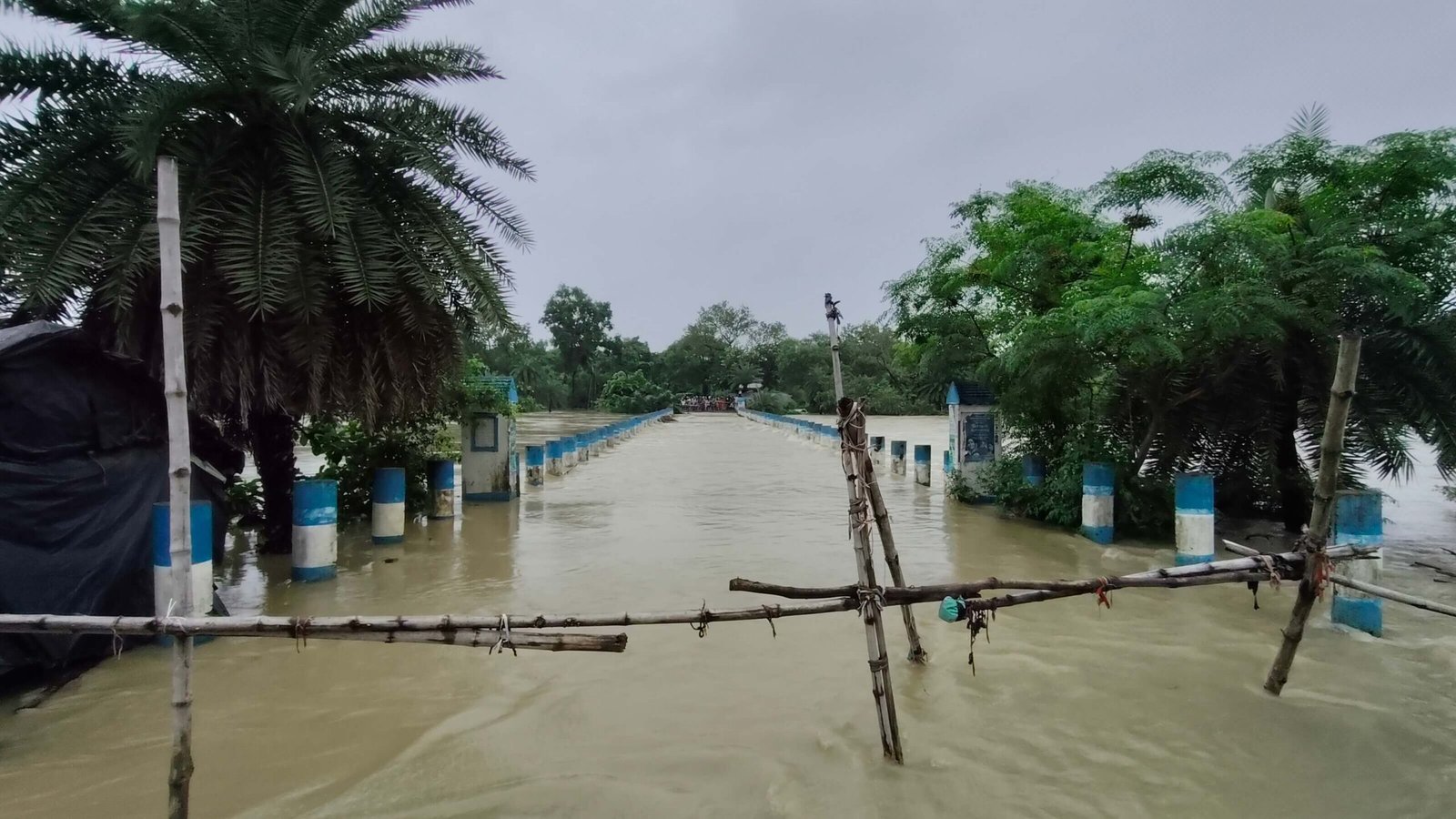Kopai River Flooding in Santiniketan: Roads and Railways Submerged Amidst Historical Context and a Growing Need for Environmental Action.

Santiniketan, a renowned cultural and educational hub in West Bengal, is grappling with a severe flood caused by the overflow of the Kopai River. Recent heavy rains have led to the river breaching its banks, inundating local villages such as Ballavpur and Vivekanandapur. This latest deluge has caused extensive damage, with numerous homes and agricultural lands submerged, plunging residents into a dire situation.
This is not the first time Santiniketan has faced such challenges. The region has experienced significant floods in the past, including major events in 1978, 1991, and 2000. The flood in 1978 caused severe damage, while the 1991 flood led to critical conditions in riverside areas. The 2000 flood was particularly devastating, resulting in numerous house collapses and extensive damage to crops, which had long-lasting impacts on the local community. Additionally, the Kopai River flood in 2019 was a significant event that highlighted the area’s vulnerability to such natural disasters. The 2019 flood caused widespread damage, leading to the displacement of numerous families and disrupting daily life. This historical context underscores the persistent challenges faced by the region.

In response to the current crisis, local authorities are actively engaged in rescue and relief operations. Various aid funds have been established to support affected families, and efforts are underway to provide immediate assistance and long-term recovery. However, it is anticipated that the situation may take some time to improve, and ongoing monitoring is essential.
The recurring floods in Santiniketan underscore a broader environmental issue affecting India. The link between deforestation, climate change, and increasing flood risks is becoming increasingly apparent. Recent natural disasters across India, including those in Kerala, Uttarakhand, Himachal Pradesh, Sikkim, Meghalaya, and Assam, highlight the growing severity and frequency of such events.
The flooding has also wreaked havoc on transportation infrastructure. Several roads and railway lines in Santiniketan are under water, causing significant disruptions. Particularly affected are the train services from Howrah to Santiniketan. On Monday, waterlogging near Howrah Station resulted in the cancellation of several trains, including the Howrah-Bolpur Santiniketan Express, Howrah-Suri Hul Express, and Howrah-Suri Express. Eastern Railway officials reported that maintenance of train coaches at the Howrah depot was impeded due to flooding, and the Tikiapara coach maintenance depot was also submerged. This has led to widespread travel disruptions, affecting thousands of passengers and tourists.
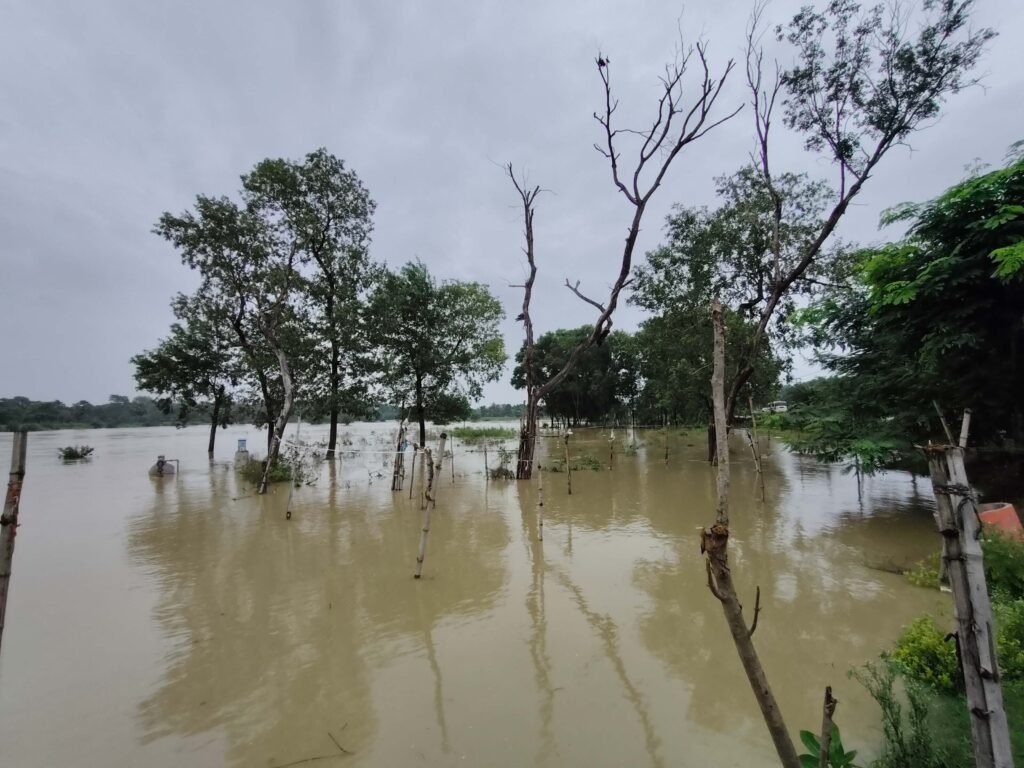

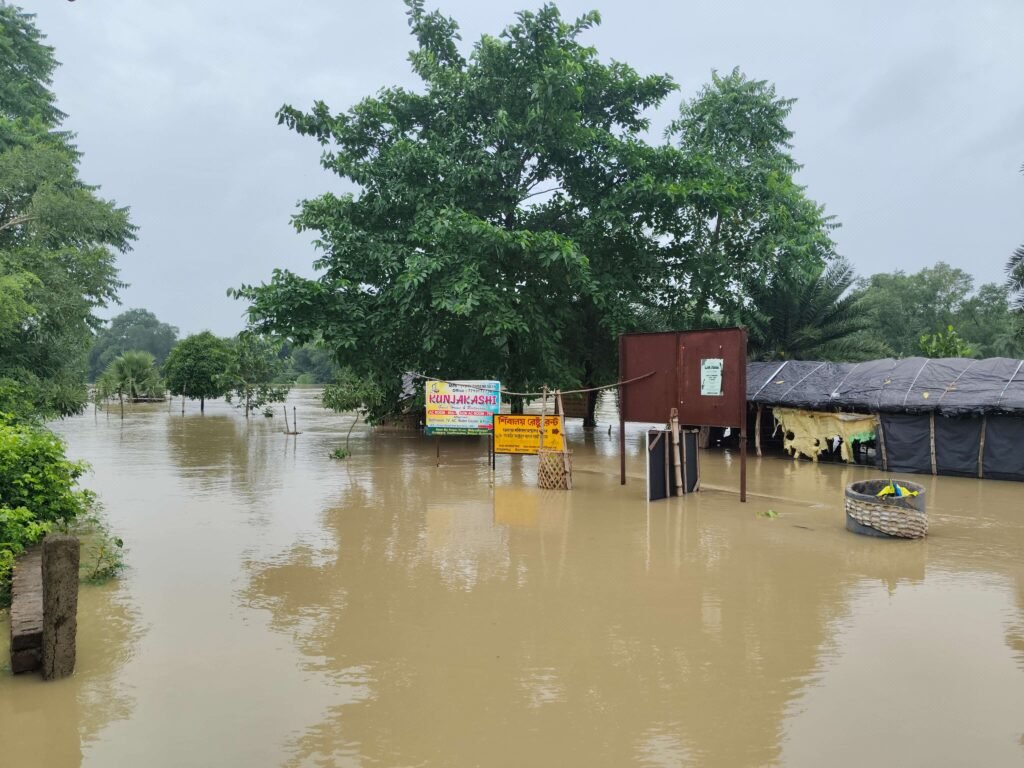
Environmental experts emphasize the urgent need to address these issues by restoring and preserving forest cover. Trees play a critical role in maintaining ecological balance by absorbing excess rainwater, reducing soil erosion, and stabilizing riverbanks. The removal of forests disrupts these natural processes, leading to higher runoff, increased flood risks, and greater damage during extreme weather events.
The current situation in Santiniketan serves as a stark reminder of the importance of environmental conservation. Sustainable land management practices and reforestation efforts are crucial in mitigating the impact of heavy rains and preventing future floods. Policies that promote forest conservation, coupled with effective disaster management strategies, are essential for building resilience against climate-related disasters.

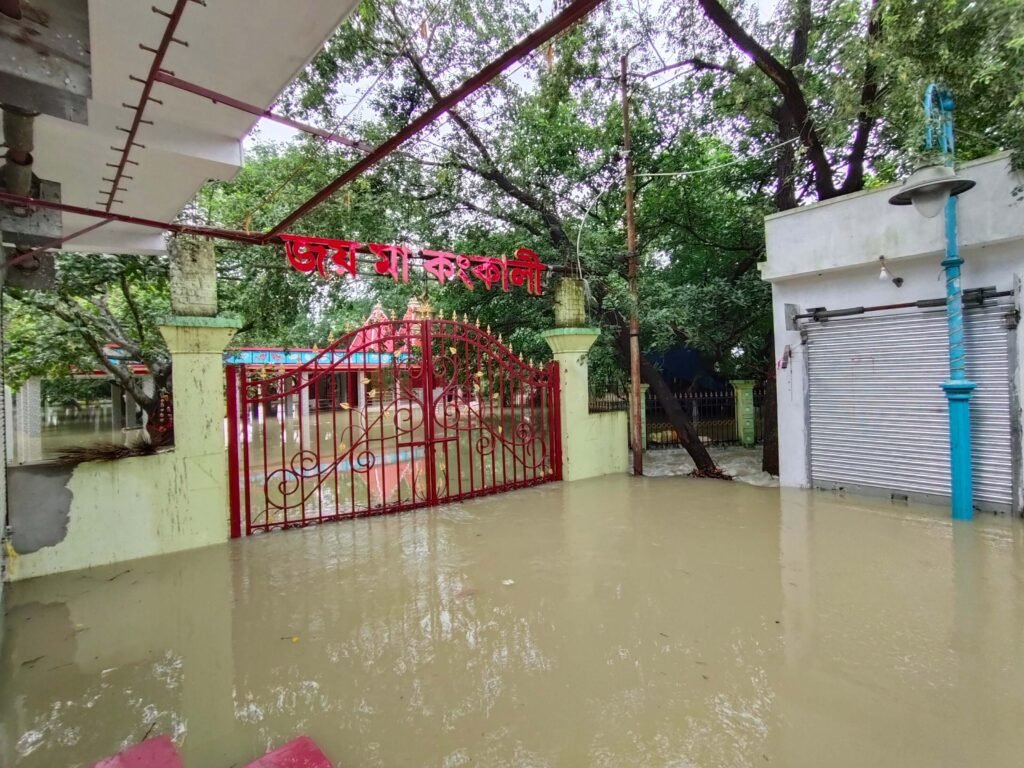
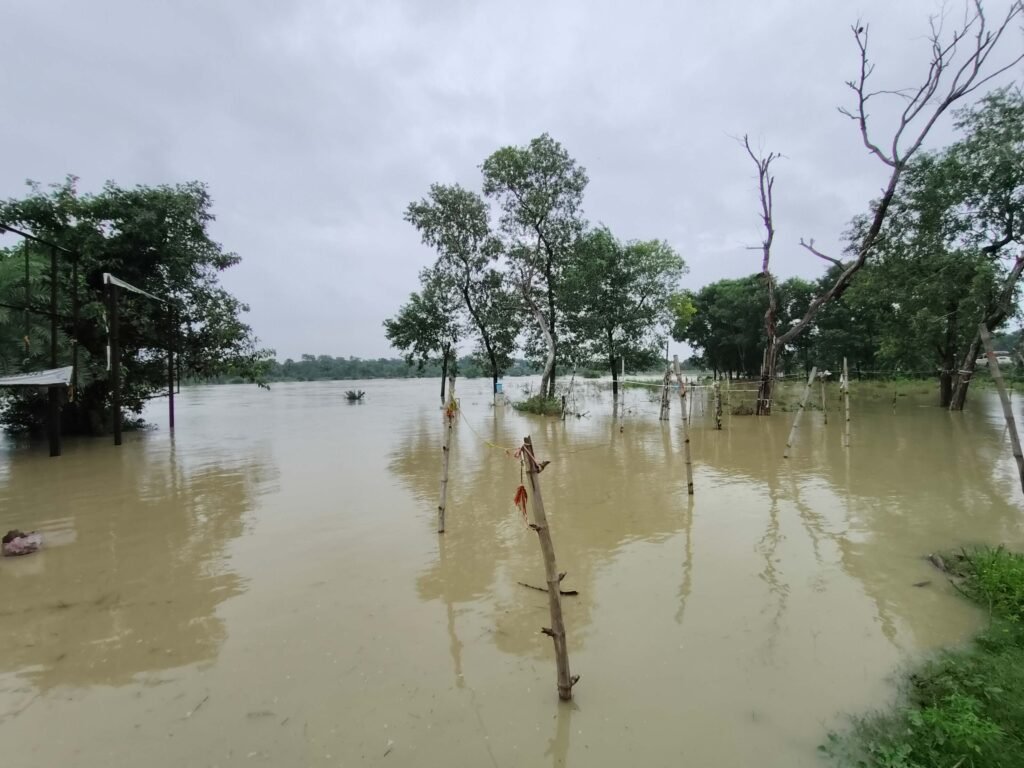
As Santiniketan and other affected regions work towards recovery, the broader message is clear: protecting and restoring our natural environment is not only vital for ecological health but also for the safety and well-being of communities across India.
Tags: brikkho, flood 2024, kopai flood 2024, kopai river, Kopai River Flooding in Santiniketan 2024, santiniketan flood 2024
